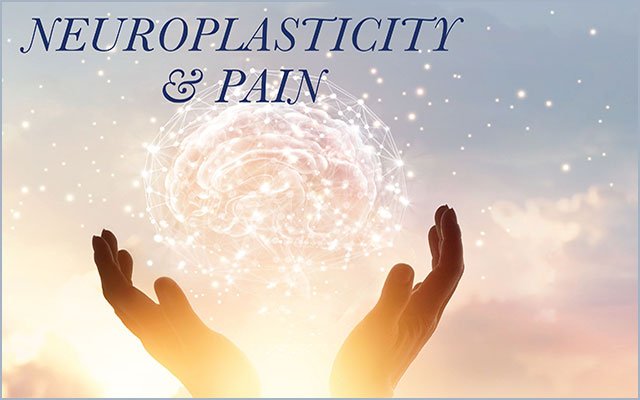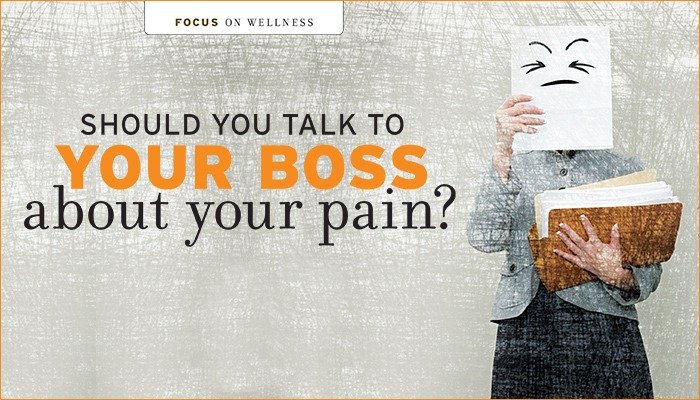Mark Ware, MD

If hearing the word marijuana (or weed, blunt, joint, ganja, hooch, Mary Jane or any of the other slang terms for cannabis) calls to mind Cheech and Chong movies or the stoner stereotype, then stop right there.
According to Mark Ware, MD, that’s part of the problem in getting patients and members of the medical community to think about cannabis or its derivatives as legitimate options for pain relief. The prevailing mindset keeps many from considering medical marijuana as a viable therapy.
“There’s a pothead or stoner mythology surrounding cannabis that permeates medical cannabis use,” says Dr. Ware. “Patients feel like they’re not being taken seriously if they ask about it. And physicians may wonder: ‘Is this really a medical need?’”
Physicians may be reluctant to offer cannabinoids (the active ingredients of cannabis) to patients because it seems so, well, pedestrian. Literally. It’s not an approved medical drug and is thought of, often, as a street drug.
Dr. Ware hadn’t thought about it much, either. It was his patients who first led him to want to investigate the safety and efficacy of medical marijuana in 1999. Some of his patients—people with chronic pain due to AIDS, multiple sclerosis and cancer—told him cannabinoids had provided a relief they hadn’t gotten from anything else. He wanted to see if there was validity to these claims.
Dr. Ware didn’t set out to be a crusader for medical marijuana. His resumé would hardly lead you to think “hippie” or even “alternative.” He’s a family physician specializing in pain and associate professor in family medicine and anesthesia at McGill University. As a professor, he is passionate about pain education both in the department of family medicine and as the academic lead in an online pain-management certificate for health care professionals. He works in chronic pain management and is the director of clinical research at the Alan Edwards Pain Management Unit of the McGill University Health Centre in Montreal. He was vice-chair of the recent Task Force on the Legalization and Regulation of Cannabis in Canada, and he is considered an expert on the science of cannabis. (Canada is more liberal than the United States on several fronts, including medicinal marijuana.)
Dr. Ware is a traditional, mainstream physician. Like many doctors spotlighted in PainPathways Magazine, he stresses the importance of using a multidisciplinary approach in pain management. He doesn’t believe one discipline has all the answers. He believes in traditional Western medicine—and that alternative therapies can have their place in an overall strategy…except in this case he’s talking about a substance that is illegal under US federal law.
The Scientific Case for Weed
Dr. Ware says his research “suggests there is analgesic potential” in marijuana. This is supported by a recent National Academy of Sciences report published in January 2017. While he notes that cannabis hasn’t gone up against other drugs in head-to-head trials, meaning it can’t be accurately compared, cannabinoids seem to have a place in the pain-relief pantheon. It’s no magic bullet, though: “As with all other pain medications, it may not work for everyone,” says Dr. Ware.
Side Effects and Risks of Medical Marijuana
Like other drugs, cannabis comes with potential side effects. “Some patients report feeling drowsy, foggy, even dysphoric,” Dr. Ware says. For those patients, any potential benefits are outweighed by the unpleasant—or, in some cases, intolerable—side effects.
Is cannabis a better alternative than opioids, which in the Unites States have been overprescribed and have proven highly addictive? Dr. Ware is careful not to make a blanket statement. Opioids have their place in the pain-management medicine cabinet. Cannabis and its derivatives may belong, too—for some people. He notes some similarities: “Both are plant derived. Opioids originally came from poppies.” Cannabis is, of course, also plant based. (It should be noted there are now powerful synthetic versions of both.)
While there is a risk of addiction with both drugs, the risk of addiction to cannabis appears to be lower. “The cannabis receptors aren’t in all the same region of the brain as opioid receptors. The two drugs work on two different parts of the brain. There’s less risk of addiction or overdose with cannabis,” says Dr. Ware. And an opioid overdose, the doctor points out, can be lethal; the same cannot be said for cannabis.
Who Benefits?
Who can benefit from the analgesic properties of cannabis? The typical scenario most people think of is someone undergoing cancer treatment or someone with late-stage cancer.
“I’m not an oncologist,” Dr. Ware says. He’s mostly studied neuropathic pain—pain caused by a disturbance in the nervous system. Cancer patients who want to explore the possible benefits (and downsides) of cannabinoids should raise the topic with their oncologists.
However, Dr. Ware is willing to say that cannabis derivatives have been shown to have more than just pain-relieving properties for cancer patients. “They may be effective in stimulating appetite, reducing nausea, improving sleep and easing some of the side effects of chemotherapy,” he says.
Do You Inhale?
If your image of marijuana use involves taking hits off a joint or a bong, immersed in a cloud of smoke, you may be stuck in the 1970s. “For a long time, marijuana was available as a dried flower people smoked,” Dr. Ware says. But in the last few years, a number of non-smoking varieties have been developed. There are cannabis extracts in the form of tinctures, oils and edibles. And there’s a relative newcomer, the vaporizer; it heats the cannabis so that the active ingredients can be inhaled. “You get the medically important ingredients without the byproducts of combustion that may go along with smoking,” Dr. Ware explains.
When inhaled, the cannabinoids work quickly, so the effects are almost immediate. When cannabis is made into an edible—a cookie, brownie or tea—its benefits are slower to take hold, but they last longer.
Helping patients figure out the best way to obtain pain relief, no matter what it is, is part of Ware’s job. So is reminding them that, even if cannabinoids are part of their treatment regimen, they need to be accompanied by other modalities. “There has to be a strategy,” says the doctor. “Sleep management, exercise, not smoking tobacco products—all of that plays into good pain management. Cannabinoids may be one part of the package.”
[RELATED: Better Medicine? Integrative Medicine and What It Has to Offer You]
It was Dr. Ware’s patient-centered approach to medicine that led him to investigate the validity of patients’ claims that there seemed to be a link between cannabis and pain relief. It was his patients who led him down a new and unexpected research path. “Physicians should listen to their patients,” he says. “Sometimes, patients bring us the answers.”
McGill University’s Online Graduate Certificate in Chronic Pain Management
Providing the latest pain-management techniques to health care professionals in order to better treat their patients is of great importance to Dr. Ware, as these clinicians do not receive much formal training in the area of pain management during their professional studies.
He’s the academic lead for McGill’s online graduate certificate in chronic pain management. This two-year program uses an interdisciplinary approach to teaching working professionals about evaluating and assessing chronic pain conditions. Nurses, dentists, occupational therapists, pharmacists, physical therapists and other healthcare professionals from around the globe have enrolled in the online degree program. With the flexibility of online education, they are able to learn in the comfort of their own homes at a pace they choose, all while benefitting from the expertise of world-renowned pain researchers and educators at McGill as well as from their online classmates through the flexibility of online learning.
“You don’t have to quit your day job,” Dr. Ware says, “to advance your career. And you can put the new approaches to use right away in your professional practice and share what you learn in the program.”
Learn more about the online certificate program and how it has impacted various health-care professionals by visiting www.mcgill.ca/spot or by calling 514-398-4400 (ext. 0432) or emailing gradcertificates.spot@mcgill.ca.
PainPathways Magazine
PainPathways is the first, only and ultimate pain magazine. First published in spring 2008, PainPathways is the culmination of the vision of Richard L. Rauck, MD, to provide a shared resource for people living with and caring for others in pain. This quarterly resource not only provides in-depth information on current treatments, therapies and research studies but also connects people who live with pain, both personally and professionally.
View All By PainPathways






